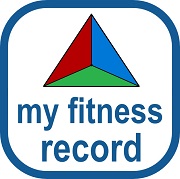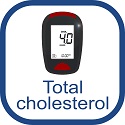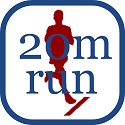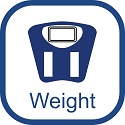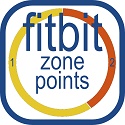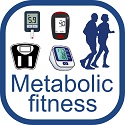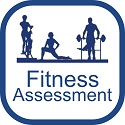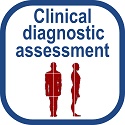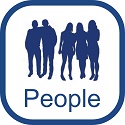|
||||
|
|
||||
|
|
ASSESSMENTS OVERVIEW
The assessments are divided into 5 categories
1. General
2. Metabolic fitness
3. Fitness - aerobic, strength and flexibility
4. Diet and chemical intake
5. Wellbeing
1. GENERAL
HOW ARE YOU GOING
For centuries whenever Australians have met they've been asking each other 'ow-y-garn'. One word. The usual response is 'not-bad-ows-y-self'.
Can you think of two more negative words to string together to describe how you feel than 'not' and 'bad'.
Because you're response is private, the 100 point 'how are you going' scale will enable you to give a more precise answer to the question.
This is the question that people ought to be invited to answer whenever they use a automatic teller machine. The results would provider of the evening news with a useful metric on the heath, fitness and wellbeing of the nation. 
HEALTH CLIMATE SURVEY The mind is just one of many body systems in a complex ecosystem. The mind and the rest of the body systems are intimately connected. For instance, when we get mentally stressed, the stress registered in the mind is relayed to other parts of the body via the autonomic nervous system.
Conversely when one of the other body systems becomes stressed, the stress is relayed to the mind. You may not realize how stressed you are until you complete the Health Climate Survey - but your body does. This explains the close relationship between metabolic fitness and mental fitness. The body is incapable of dishonesty!
2. METABOLIC FITNESS
BLOOD PRESSURE
Blood pressure is one of a number of key indicators of the metabolic fitness. It's something you can measure every day at home. When it's all boiled down, elevated blood pressure is telling you to improve your physical condition and reset your autonomic nervous system.
High blood pressure is not caused by a lack of Amlodipine!
BLOOD GLUCOSE
Glucose is the main source of energy for our bodies.
Diabetes occurs when there’s too much glucose in the
blood. This happens when the body cannot produce enough insulin, or use
it properly.
Adult onset diabetes is not caused by a lack of Metformin!
CHOLESTEROL
Cardio vascular disease is the leading cause of death in the Western world. Too much cholesterol can clog the arteries supplying blood to the heart and other parts of the body and result in a heart attack or stroke.
There are two types of lipoproteins involved in a total cholesterol test, high density lipoprotein (the good cholesterol) and low density lipoprotein (the bad cholesterol.)
It is usually the case that when total cholesterol readings are high that it is the 'bad cholesterol that is the culprit. A high reading is the red light, warning you to go and have it tested properly.
High cholesterol levels are not caused by a lack of Atorvastatin!
20M RUN
All you have to do is mark out to lines 20 metres apart and see how many laps you can complete in 5 minutes. You can walk, shuffle, jog or run.
This is the test that medical, fitness and allied health practitioners should be taking their clients through on a regular basis.
You can do it yourself.
WEIGHT
The Western world is experiencing an over weight epidemic. Keep track of your weight, aiming to get closer to what you believe is your ideal weight.
PERCENT BODY FAT
Whilst keeping track of your weight is important, tracking your percent body fat will give you a clearer idea of how close you are to your ideal weight.
Less than 25% for men and 35% for women is acceptable.
Less that 20% for men and 30% for women is closer to your ideal weight.
There are now scales available that will link automatically to the Fitbit smart watch and phone app.
FITBIT AEROBIC ZONE POINTS PER WEEK
The Fitbit aerobic fitness zone points enables you to measure how much aerobic fitness activity you do each day/week/month. It is based on a formula the includes frequency (number of times a week), duration (of each workout) and intensity (based heart rate)
If while exercising your heart rate exceeds (circa) 60% of your age-related maximum (220 minus age), you get one point per minute. If it exceeds (circa) 75% of your maximum, you receive 2 points per minute.
50 points per day is a fair and reasonable target to attain and maintain a good level of aerobic fitness.
Steps is good. Steps with aerobic zone points is better.
METABOLIC FITNESS The metabolic fitness assessment is designed to provide insight into whether or not you are already suffering from the ravages of general metabolic dysfunction The causes stick out like a sore thumb – sedentary lifestyle, a toxic environment and a reliance on a mixture of fat, flour, sugar and potato to fuel your body.
3. FITNESS
FITNESS ASSESSMENT - aerobic fitness, strength and flexibility
It’s a very big ask in our culture expecting to stay healthy without
keeping yourself fit. Knowing how fit you are is critical to
establishing how healthy you are.
There are any number of compelling reasons to keep yourself fit. For
starters aerobic fitness is the foundation of good metabolic health.
It’s also a key driver in supporting good mental fitness. The musculo-skeletal dysfunctions are driven by a lack of strength and flexibility.
The fitness assessment is an all round test the includes aerobic fitness strength and flexibility components.
UNIVERSAL FITNESS TEST
The Universal Fitness Test is designed to encourage people to keep
themselves fit and healthy to the best of their ability. The test is
suitable for use by ‘regular folks’, elite force personnel, school
students and sporting teams. It’s an essential medical diagnostic assessment tool for determining health status. A medical check-up that includes parameters like blood pressure, cholesterol, blood glucose is seriously deficient if it doesn’t include a test of aerobic fitness, strength and flexibility.
It’s frequently the case that when people have pain in one region of their musculo-skeletal system, they also have twinges in other areas that need attention. 80% of all joint and muscle pain is a symptom that the skeleton is out of alignment and lacking support from (weak) muscles.
How out of alignment and how poorly supported by muscles will be shown up in a specific joint assessment.
The good news is that for 80% of people there's an 80% chance they can get themselves back to 80% of 'good nick' in around 80 days if they're diligent.
Click here to record your scores.
MUSCULO-SKELETAL FITNESS The Ten Point Musculo-skeletal Risk assessment provides individuals and organisations with an audit of current and future risk of coming down with joint and muscle pain – plus the tools they need to get their skeleton back into better alignment ands their muscles strong enough to do every tasks without breaking down.
The tools are called strength and flexibility exercises. The only catch is that you have to do them yourself, you can’t subcontract out a strength and flexibility training program to a massage therapist!
CLINICAL DIAGNOSTIC ASSESSMENT
For 80% of people, joint and muscle pain is personally generated. Tight muscles, particularly those attached to the pelvis have taken the pelvis and the bones above and below it out of alignment.
Ligaments, tendons and muscles have been stretched beyond their pain threshold. The pain is telling people to get themselves back into better alignment by loosening off the tight muscles. The pain is not caused by a lack of rubbing, crunching, heating, vibrating, doping or surgery.
The pain is telling people to loosen the tight muscles off.
The Clinical Diagnostic Assessment involves watching how well people can adopt a number of diagnostic postures. thereby determining which muscles are tight.
4. DIET AND CHEMICAL INTAKE
DIET
We’re living in age of
personally-generated body system dysfunctions.
What that means is that as a society generally we’re not eating enough
of the right food at the right time – and not getting enough exercise.
In earlier times the sage might have said that it was the love of junk
food that was the root of all kinds of evil. Certainly it is now the
root of all kinds of body system dysfunction. However, the good news is that if the body has become compromised by poor food choices, then there is a good chance that the body’s innate recuperative power can be stimulated by a diet of good food.
Click here to record your scores.
CHEMICAL INTAKE Socially accepted drug use, including pharmaceuticals has become an integral part of our culture, particularly by people who are either over-stimulated or under-stimulated by their lives. The effects on the body can be both acute and chronic. Take this survey to determine whether you’re squeaky clean in this department.
5 . WELLBEING
This profile is based on the habits of unstressed people. If you do what unstressed people do to manage their stress, then there’s every chance you’ll keep the stress of your life under control.
Here are a couple of
quotes to get you focused, the first from the first century by Epictetus:
‘It’s not what happens to you, but how you react to it that matters.’
The second comes from Joshua Simpson in 2020: ‘The problem with work is
that it makes time go by too fast. The more you do, the more there is to
do.’
CAREER SATISFACTION This profile is based on the habits of people who are in the right job and love their work. They have a clear direction as to the course of their career. They're happy with where they are on the career staircase.
Are you living the life you’d like to live?
Are you getting enough of what you want and need to live a fit, healthy,
rich and fulfilling life? Find out by completing this profile.
FINANCE
Being broke is major source of stress.
Look after your finances. Financial health is an integral part of the rich and fulfilling life. We need a financial plan that enables us to live in the manner to which we are accustomed (or to which we aspire) now, and in the future.
Look after your finances.
Close personal relationships with other people facilitates good health
and helps us to become less stressed. The support of families and friends acts as a buffer against the impact of stressful events. Talking about our problems, fears and tensions is a good way of getting a handle on them.
|
|||
